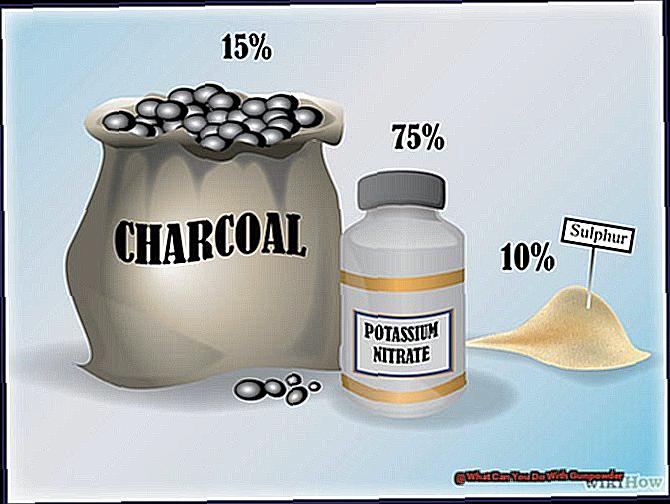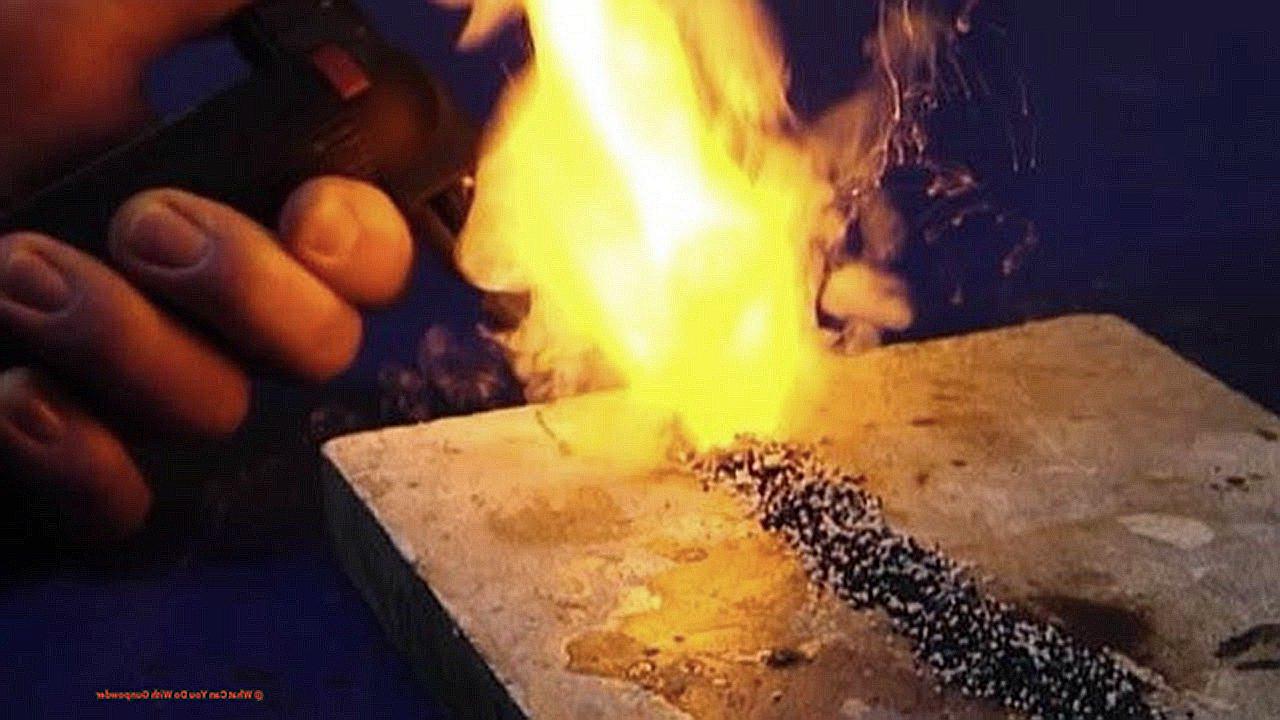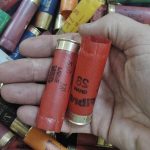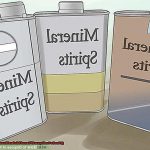The unmistakable sound of gunpowder has reverberated through time, from the battlefields of old to the backyard barbecues of today. But this potent substance is more than just a flashy showstopper.
Its history spans centuries and continents, leaving an indelible mark on our world. And while its explosive nature may be infamous, there’s a whole other side to gunpowder waiting to be discovered.
So join me as we embark on a journey through the intriguing realm of gunpowder – from its ancient roots to its modern-day applications that go beyond mere explosions.”
What Can You Do With Gunpowder?
Contents
- 1 What Can You Do With Gunpowder?
- 2 The Explosive Properties of Gunpowder
- 3 Traditional Uses of Gunpowder in Firearms and Explosives
- 4 Creative Uses of Gunpowder: Fireworks and Construction
- 5 Medicinal and Agricultural Uses of Gunpowder
- 6 Unconventional Uses of Gunpowder: Cooking, Survival Skills, and Art
- 7 Safety Precautions When Handling Gunpowder
- 8 Conclusion
The Versatile Uses of Gunpowder: From Explosives to Art Supplies
When you hear the word “gunpowder,” what comes to mind? Most likely, you immediately think of guns and explosives. And while it’s true that gunpowder is a key ingredient in firearms and fireworks, its uses go far beyond that.
Gunpowder, also known as black powder, was first invented in China during the 9th century and quickly spread to Europe during the Middle Ages. Its main components are potassium nitrate (or saltpeter), charcoal, and sulfur, which are mixed in specific ratios to create a powerful explosive.

But what else can you do with gunpowder? As it turns out, there are many surprising and practical ways to use this versatile substance.
Fireworks
Perhaps one of the most well-known uses of gunpowder is in fireworks. The colorful displays we see on special occasions like Independence Day or New Year’s Eve are made possible by adding different chemicals and metals to the gunpowder mixture. This creates the vibrant colors and effects we see lighting up the sky.
Mining and Construction
Gunpowder is also used in mining and construction. Its explosive properties make it ideal for blasting through rocks and excavating tunnels. It can also be used for controlled demolition of buildings or other structures.
Fertilizer
Believe it or not, gunpowder can also be used as a fertilizer for plants. The nitrogen-rich component, saltpeter, can help plants grow and improve soil quality when used in small amounts.
Medicine
In the past, gunpowder was used as a medicine for various ailments such as headaches, stomachaches, and even toothaches. It was believed that its explosive properties could help relieve pain and discomfort. However, this practice is no longer recommended due to safety concerns.
Model Rockets and Engines
For those interested in model rockets or engines, gunpowder can serve as a propellant or fuel source. This allows for exciting and explosive experiments and projects.
Survival and Outdoor Activities
In emergency situations, gunpowder can be used to start fires. By creating a spark with flint or steel, the sulfur in gunpowder can ignite and provide warmth or cook food.
The Explosive Properties of Gunpowder
Do you know what makes gunpowder so explosive? Or how it has been utilized throughout history beyond warfare and entertainment? As an expert on the topic, I am here to educate you on the highly combustible substance known as gunpowder.
History of Gunpowder
The Chinese were the first to discover the explosive properties of gunpowder during the 9th century. Its initial use was in fireworks and weapons, but its applications quickly expanded to various industries.
Components of Gunpowder
The three main components of gunpowder are potassium nitrate (saltpeter), charcoal, and sulfur. When these ingredients are mixed in the correct proportions, they create a highly combustible substance that can be ignited by a spark or flame.
Explosive Force
When ignited, gunpowder undergoes a chemical reaction that produces a large volume of hot gas, resulting in an explosive force. This explosive force has been utilized in military weapons, mining activities, construction projects, and entertainment displays.
Uses Beyond Warfare and Entertainment
In military warfare, gunpowder has powered cannons, muskets, and other firearms. Its use in mining has allowed for the development of many industries through tunneling and shaft creation. In construction, gunpowder has been used to break rocks and clear land for building projects. And in entertainment, its explosive properties have been harnessed for use in fireworks displays and special effects in movies and television shows.
Risks and Dangers
While gunpowder has been instrumental in many aspects of human history, it also poses significant risks and dangers if not handled properly. Improper storage or disposal can lead to accidental explosions and harm to individuals and the environment.
Proper Handling and Disposal Methods
To prevent accidents or harm, it is crucial to understand the proper handling and disposal methods for gunpowder. This includes storing it in a cool, dry place and disposing of it through safe methods such as contacting local authorities or hazardous waste facilities.
Traditional Uses of Gunpowder in Firearms and Explosives
Gunpowder, also known as “black powder,” has been used for centuries as a propellant in firearms and explosives. Its origin can be traced back to China in the 9th century, where it was first used for military purposes such as launching rockets and creating fire arrows. From there, it quickly spread to Europe and revolutionized warfare.
During the Renaissance era, gunpowder became the key ingredient in muskets and rifles, making them more powerful and efficient weapons. This gave armies a significant advantage on the battlefield and ultimately led to the decline of knights in armor.
But gunpowder’s impact didn’t stop there. With advancements in technology, it was also used in artillery shells and bombs during World War I and II. Today, it is still a vital component in modern firearms and military-grade explosives like C4.
The controlled explosion of gunpowder in firearms allows for accurate long-range shots, making it essential for hunting and target shooting. It is also used in explosives for mining, demolition, and military operations.
However, with great power comes great responsibility. Handling gunpowder requires caution and proper safety measures as it can be highly dangerous if mishandled. This includes proper storage, handling, and disposal methods.
In fact, improper disposal of gunpowder can have serious consequences such as accidental explosions and environmental damage. That’s why it’s important to follow proper disposal guidelines set by your local authorities or seek professional help.
Creative Uses of Gunpowder: Fireworks and Construction
When we think of gunpowder, our minds may immediately jump to images of loud explosions and fiery displays. And while it is true that gunpowder is most commonly associated with fireworks, its uses go far beyond just entertainment. In fact, this explosive substance has a long and fascinating history, with many creative and practical applications that may surprise you.
One of the earliest and most popular uses of gunpowder was in fireworks. The Chinese are credited with inventing gunpowder and using it to create dazzling displays for celebrations and entertainment. Today, fireworks are still a major use of gunpowder, with millions of dollars spent on them every year for events such as Fourth of July celebrations, New Year’s Eve parties, and sporting events.
But what exactly is gunpowder made of? It is a combination of sulfur, charcoal, and potassium nitrate (also known as saltpeter). These three ingredients are mixed together in specific proportions to create the explosive powder. However, it is not just the combination of these ingredients that produces the iconic bursts of color and light in fireworks. Various chemicals and materials are added to create different effects – for example, copper salts produce a blue color while strontium salts create a red color.
Aside from entertainment, fireworks also have practical uses in signaling and communication. In the past, military forces used fireworks to send signals and coordinate attacks. Today, they are used in distress signals for maritime emergencies. This shows that while gunpowder may have had a violent past, it can also serve as a means of communication and safety.
But the creative uses of gunpowder don’t stop there. It also has a significant role in construction. Dynamite, a powerful explosive used for demolition and excavation purposes, contains gunpowder as a key ingredient. It is also used in blasting caps to trigger controlled explosions in mining and quarrying. This highlights the crucial role that gunpowder has played in shaping our modern infrastructure.
Medicinal and Agricultural Uses of Gunpowder
6 Surprising Medicinal and Agricultural Uses of Gunpowder
When you think of gunpowder, what comes to mind? Explosions, loud noises, and perhaps some Fourth of July celebrations? While it’s true that gunpowder has been used for these purposes, its uses go far beyond just entertainment. In fact, gunpowder has a long history of being used for medicinal and agricultural purposes as well.
As an expert on the topic, I am excited to share with you some of the surprising ways that gunpowder has been utilized in these fields. From traditional Chinese medicine to modern research, here are six medicinal and agricultural uses of gunpowder that may surprise you.
Traditional Chinese Medicine
Gunpowder has been used for medicinal purposes since ancient times. In traditional Chinese medicine, it was believed to have healing properties and was used to treat various ailments such as fever, inflammation, and even toothaches. Today, it is still being used in certain types of medicines.
Anti-Cancer Properties
One of the active ingredients in gunpowder is potassium nitrate, which has been found to have anti-cancer properties. In fact, there are studies currently being conducted on its potential use in chemotherapy treatments for certain types of cancers.
Fertilizer
Farmers have also discovered the benefits of gunpowder in agriculture. Due to its high levels of nitrogen, it has proven to be an effective fertilizer when mixed with other ingredients. This helps plants grow faster and stronger.
Natural Pesticide
In addition to being a fertilizer, gunpowder has also been used as a natural pesticide. Its ability to kill pests without harming the plants or the environment makes it a valuable tool in farming.
Soil Improvement
Gunpowder has been used in traditional farming methods to improve soil quality and increase crop yields. Its potassium nitrate content helps improve soil drainage and aeration, making it easier for plant roots to absorb nutrients.
Stomach and Dental Health
In some cultures, gunpowder is used as a natural remedy for stomach-related issues such as bloating and diarrhea. It is believed to have a soothing effect on the stomach lining. Additionally, studies have shown that gunpowder can also be beneficial for dental health by reducing plaque build-up and preventing cavities when used as a mouthwash.
Unconventional Uses of Gunpowder: Cooking, Survival Skills, and Art
In Chinese cuisine, gunpowder tea has been enjoyed for centuries. This unique beverage is made by rolling tea leaves with gunpowder pellets, resulting in a smoky and flavorful tea. The name “gunpowder tea” comes from the resemblance of the rolled tea leaves to gunpowder pellets. It’s a must-try for any tea lover looking for a new and interesting flavor.
But gunpowder isn’t just for drinking. In fact, it can also be used as a savory seasoning. During the Civil War, soldiers would mix salt, pepper, and gunpowder to create a seasoning called black powder. This was used to add flavor to their rations and can still be used today as a rub for meats or added to marinades for a unique smoky taste.
In survival situations, gunpowder can come in handy as well. One unconventional use is creating fire starters by mixing gunpowder with sawdust and wax. These homemade fire starters are easy to make and can help start fires quickly and easily. Gunpowder can also be used as a signaling device by igniting it in a small container, creating a loud noise that can alert rescuers to your location.
But perhaps one of the most surprising uses of gunpowder is in the world of art. Some artists use it as a pigment in their paintings, while others use the actual explosion of gunpowder to create intricate patterns on paper or canvas. One famous example is artist Cai Guo-Qiang’s “Gunpowder Drawings” series, where he ignites gunpowder on paper to create large-scale abstract artworks.
And if you’re feeling adventurous, gunpowder can even be used as a dye for fabrics. In traditional Japanese art, gunpowder was commonly used as a dye to create intricate patterns on silk fabrics. You can also use it to create unique tie-dye effects on t-shirts or other materials.
Safety Precautions When Handling Gunpowder
The world of gunpowder may seem exciting and adventurous, with its ability to create explosive effects and add a smoky twist to everyday items. However, it is crucial to remember that gunpowder is a highly explosive substance and proper safety measures should always be taken when handling it. As an expert on gunpowder safety, I have seen firsthand the consequences of not following proper precautions.
First and foremost, proper storage of gunpowder is essential. It should always be kept in a cool, dry place away from any sources of heat or ignition. This means keeping it away from open flames, sparks, and even direct sunlight. Storing it in a secure container is also crucial to prevent any accidental spills or access by unauthorized individuals.
In addition to proper storage, wearing protective gear when handling gunpowder is a must. This includes safety glasses, gloves, and a dust mask. These items will protect you from potential explosions or ingestion of gunpowder particles.
Another important factor to consider is the danger of static electricity when handling gunpowder. Gunpowder is highly sensitive to static electricity and even a small spark can cause it to ignite. To avoid this, make sure to ground yourself before handling gunpowder and avoid wearing any clothing that can generate static, such as wool or synthetic fabrics.
It cannot be stressed enough to never smoke or have any open flames near gunpowder. This may seem like common sense, but accidents can happen if this precaution is not followed. It is also recommended to keep a fire extinguisher nearby when handling gunpowder, just in case of any accidents.
When using gunpowder, always follow the manufacturer’s instructions carefully. Different types of gunpowder may have different handling and storage instructions, so it is important to read and follow them accordingly.
And what about disposal? It is never safe to throw unused or expired gunpowder in the trash or flush it down the drain. The best way to dispose of it is by contacting your local hazardous waste management facility for guidance on safe disposal methods.
Conclusion
To sum up, gunpowder may have a reputation for its explosive capabilities, but as we’ve explored in this article, it has a fascinating history and a diverse range of uses beyond its ability to create loud bangs and dazzling displays. From its ancient origins in China to its modern-day applications in various industries, gunpowder has made an enduring impact on our society.
We’ve seen how it’s not limited to just firearms and fireworks, but also plays a vital role in mining, construction, and even agriculture. Its unexpected medicinal properties and ability to enhance the taste of food or produce stunning works of art are further proof of its versatility. However, with great power comes great responsibility. It’s crucial to handle gunpowder with care and follow proper safety protocols to avoid accidents.





